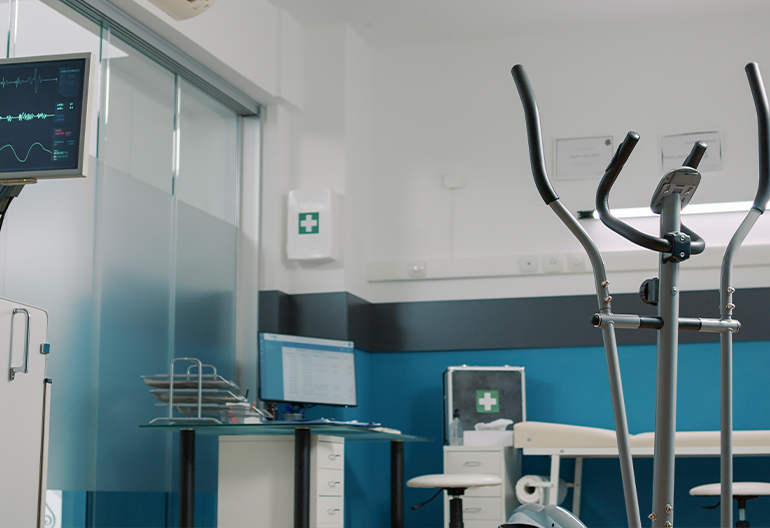
In a world where the pace of life seems to quicken with each passing day, taking care of our heart health has never been more important. After all, our heart is the lifeline that keeps our body going. In this comprehensive guide, we will explore the essential measures and care that anyone can incorporate into their daily routine to ensure a healthy heart. Join us on this journey towards a stronger, happier heart.
Embrace Heart-Healthy Eating Habits:
Your dietary choices play a crucial role in maintaining cardiac health. opt for a diet rich in fruits, vegetables, whole grains, lean proteins, and healthy fats. According to a study published in the Journal of the American Heart Association, a Mediterranean-style diet, which includes olive oil, nuts, and fish, has been linked to a reduced risk of heart disease.
Stay Active, Stay Heart-Strong:
Regular physical activity is a cornerstone of Cardiac Health. Engage in moderate exercises like brisk walking, cycling, or swimming for at least 150 minutes a week. A study conducted by researchers at the American College of Cardiology found that even a small increase in physical fitness can lead to a significant decrease in cardiovascular risk.
Kick Tobacco to the Curb:
Smoking and exposure to secondhand smoke are detrimental to your heart. Research from the Centers for Disease Control and Prevention emphasizes that quitting smoking can lead to an immediate improvement in heart health, reducing the risk of heart disease.
Manage Stress, Protect Your Heart:
Chronic stress can have a negative impact on your heart. Engage in relaxation techniques such as deep breathing, meditation, or yoga. A study published in the Journal of the American College of Cardiology suggests that stress management techniques can lead to improved cardiovascular outcomes.
Prioritize Sleep for Heart Wellness:
Quality sleep is essential for heart health. Aim for 7-9 hours of sleep per night. A research article from the National Sleep Foundation highlights the link between inadequate sleep and an increased risk of heart disease.
Regular Health Check-ups and Screenings:
Routine check-ups can help detect risk factors for heart disease. Visit your healthcare provider regularly and discuss your heart health. The American Heart Association recommends blood pressure and cholesterol screenings to catch potential issues early.
Maintain a Healthy Weight:
Excess weight puts strain on your heart. Strive for a healthy weight through a balanced diet and regular exercise. According to the World Heart Federation, maintaining a healthy weight can significantly reduce your risk of heart disease.
Limit Salt and Sugar Intake:
Excessive salt and sugar consumption can contribute to high blood pressure and heart disease. The American Heart Association advises limiting sodium and added sugar intake for better heart health.
Stay Hydrated with Heart-Healthy Drinks:
opt for water, herbal teas, and natural fruit juices instead of sugary beverages. The Harvard T.H. Chan School of Public Health suggests that staying hydrated with these options supports overall heart health.
Connect with Your Healthcare Provider:
Regular consultations with a healthcare professional are crucial. Tanveer Ahmad MD, FACC, an experienced invasive cardiologist, emphasizes the importance of partnering with a qualified healthcare provider to monitor your heart health journey.
Caring for your heart is a lifelong commitment that requires attention to various aspects of your lifestyle. By making heart-healthy choices in your diet, exercise routine, stress management, and more, you can significantly reduce your risk of heart disease and enjoy a fuller, happier life. Remember, each positive step you take brings you closer to a heart that beats with strength and vitality.

Tanveer Ahmad MD, FACC is a board-certified invasive cardiologist with a wealth of experience in the field of cardiology. He graduated from King Edward Medical University. Has completed his residency and internal medicine training at reputable institutions like Mayo Hospital and AtlantiCare Regional Medical Center. Dr. Ahmad’s dedication to cardiac health is reflected in his fellowship at the Deborah Heart and Lung Center. He has served as the Director of the cardiac catheterization lab at Monmouth Medical Center-Southern Campus and currently contributes as a teaching attending for the family medicine residency program at Ocean Medical Center. A Fellow of the American College of Cardiology and a member of the American Society of Nuclear Cardiology, Dr. Ahmad’s expertise and passion make him a trusted figure in the realm of heart health. Beyond his medical pursuits, he finds joy in spending time with his family and indulging in boating adventures.




